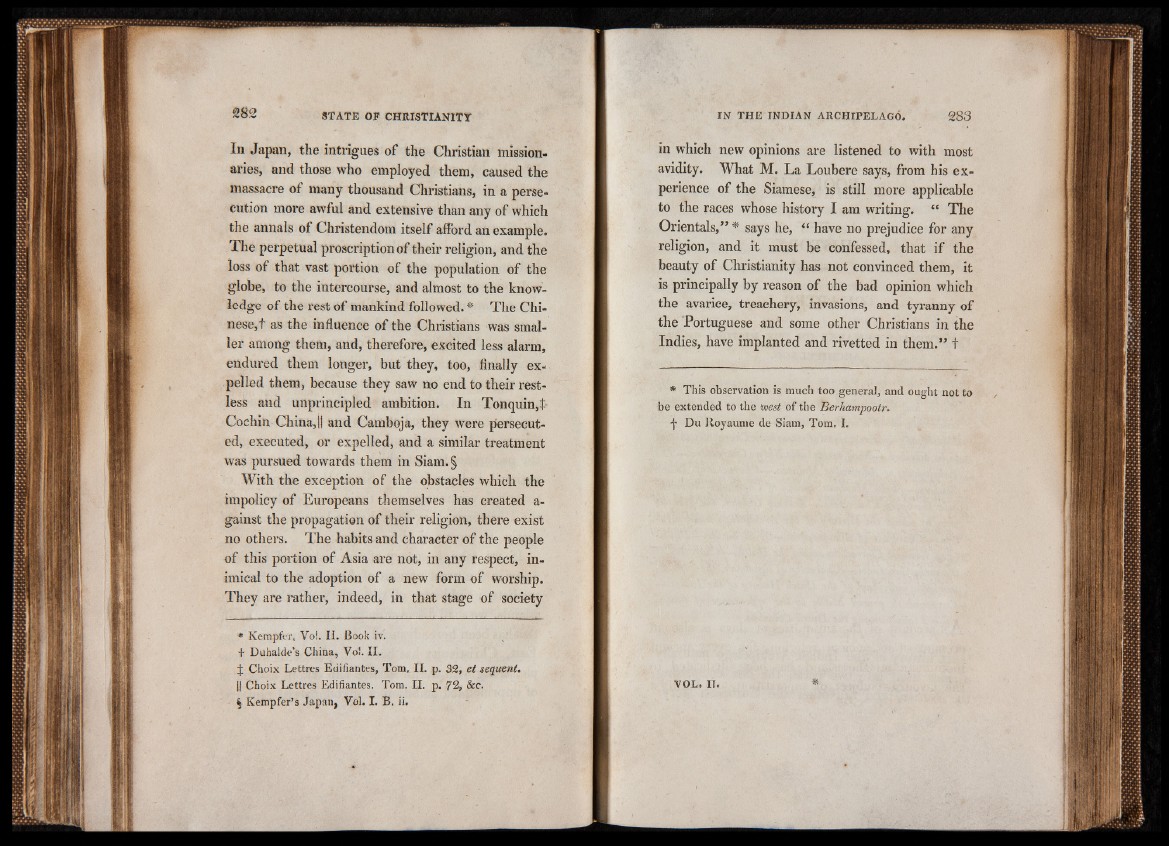
In Japan, the intrigues of the Christian missionaries,
and those who employed them, caused the
massacre of many thousand Christians, in a persecution
more awful and extensive than any of which
the annals of Christendom itself afford an example.
The perpetual proscription of their religion, and the
loss of that vast portion of the population of the
globe, to the intercourse, and almost to the knowledge
of the rest of mankind followed. * The Chinese,
t as the influence of the Christians was smaller
among them, and, therefore, excited less alarm,
endured them longer, but they, too, finally expelled
them, because they saw no end to their restless
and unprincipled ambition. In Tonquin,t
Cochin China, ¡1 and Camboja, they were persecuted,
executed, or expelled, and a similar treatment
was pursued towards them in Siam.§
With the exception of the obstacles which the
impolicy of Europeans themselves has created a-
gainst the propagation of their religion, there exist
no others. The habits and character of the people
of this portion of Asia are not, in any respect, inimical
to the adoption of a new form of worship.
They are rather, indeed, in that stage of society
* Kempfer, Vol. II. Book iv.
+ Dubalde’s China, Vol. II.
J Choix Lettres Edifiantes, Tom, II. p. 32, et sequent.
|| Choix Lettres Edifiantes. Tom. II. p. 72, &c.
§ Kempfer’s Japan, Vol. I. B. ii.
in which new opinions are listened to with most
avidity. What M. La Loubere says, from his experience
of the Siamese, is still more applicable
to the races whose history I am writing. “ The
Orientals,” * says he, “ have no prejudice for any
religion, and it must be confessed, that if the
beauty of Christianity has not convinced them, it
is principally by reason of the bad opinion which
the avarice, treachery, invasions, and tyranny of
the Portuguese and some other Christians in the
Indies, have implanted and rivetted in them.” t
* This observation is much too general, and ought not to
be extended to the ivest of the Berhampootr.
\ Du Royaume de Siam, Tom. I.
VOL. IT. *